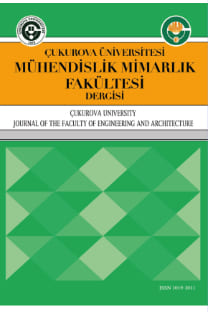Uygulamalı Otomasyon Sistemleri Eğitim Simülatörü Geliştirilmesi
Türkiye'de iş çevrelerinin ortak beklentisi, mesleki ve teknik okulların yetiştirdiği teknik elemanların piyasa ihtiyaçlarını karşılayabilir nitelikte olmasıdır. Baş döndürücü bir hızla gelişen otomasyon sektöründe oldukça ciddi seviyede nitelikli ara eleman açığı bulunmaktadır. Türkiye'de otomatik kontrol konusunda nitelikli ara eleman ihtiyacını gidermek ancak bu konuda eğitim veren mesleki okullarda pratiğe yönelik eğitim yapılması ile mümkündür. Uygulamalı Otomasyon Sistemleri Simülatörü, Mesleki ve Teknik Eğitim verilen tüm okul ve kurumların yanı sıra üretim yapan kurumların hizmet içi eğitim faaliyetlerinde de uygulamalı eğitim verebilmek üzere tasarlanmıştır. Uygulamalı Otomasyon Sistemleri Simülatörü mesleki ve teknik eğitim alan teknik personel adaylarının uygulama faaliyetlerini gerçekleştirebildiği ve yaptığı uygulamalar sayesinde farklı uygulamalar tasarlayabileceği bir eğitim materyalidir. Sistem üzerinde endüstriyel üretimde kullanılan tüm elektriksel alıcıların minyatürleri üzerinde çeşitli uygulama örnekleri ve yazılımlar gerçekleştirilerek deney sonuçlarının gözlemlenmesini sağlayan materyaller mevcuttur.Böylece öğrenci ve kursiyerin sahada çalışmadan önce saha ortamına ön hazırlık safhası olabilecek ve kendisini geliştirerek fikir yürütebilecek bir eğitim ortamı sağlanmaktadır. Uygulamalı Otomasyon Sistemleri Simülatörü piyasada bulunan tüm PLC markaları ile uyumlu çalışarak yazılan programların test edilmesi olanağını sunmaktadır. Aynı zamanda mikro denetleyici tabanlı kontrol kartları kullanılarak deneysel çalışmalar yapılabilmektedir.Mesleki ve teknik eğitimde başarıya ulaşmanın yolu, verilen teorik bilgilerin uygulama ve deney faaliyetleri ile desteklenmesi ile mümkündür. Bu set bu alandaki açığı kapatabilecek niteliktedir.
Development of an Applied Automation Systems Simulator
The common expectations of the business world in Turkey are that the vocational schools of higher education and technical schools train students according to the needs of the industry. In the rapidly developing automation sector there is serious shortage of technically skilled personnel. The only way to provide the amount of skilled technical personnel up to the expectations of the industry can only be achieved by making the education in vocational schools oriented for the applied industry practice. The developed Applied Automation Systems Simulator is designed to be used in vocational and technical schools and also can be used in enterprises in the industry for hands on training for the staff. This simulator is a training material that helps the technical personnel candidates who attend vocational education to participate applied activities and to designnew applications on their own. There exist the miniatures of all the electrical sensors used in the industrial production systems on the simulator where students can participate in some predefined application examples, observe and gather info about experiments made by the students using the software in the simulator. Hence an educational environment where students can practice real life situations applied in the industry before going to the field can be created and the students can learn how to make reasoning in such situations by improving their skills. The developed simulator is compatible with all the PLC brands used in the industry therefore giving the ability to test the programs written by the students in the software employed in the simulator. At the same time by the use of microcontroller based control cards experimental studies can easily be made with the simulator. The way to success in vocational and technical education is only possible by reinforcing the theoretical education with hands on activities and experiential training. This simulator is capable of filling the gap in this field.
___
- Yörük, S., Dikici, A., Uysal, A., 2002. Bilgi Toplumu Ve Türkiye'de Mesleki Eğitim, Fırat Üniversitesi Sosyal Bilimler Dergisi, Cilt 12, Sayı 2, 299-312, Elazığ.
- 2.TİSK,1997. Türkiye'de veDünyada Mesleki Eğitim, Ankara.
- 3.Akpınar, B., 2005. Teknik Öğretmen Yetiştirme Sorunu ve Teknik Eğitim Fakültelerinin Geleceği, GÜ, Gazi Eğitim Fakültesi Dergisi, Cilt 25, Sayı 1, 259-274, Ankara.
- 4.Karacan, S., Karacan, E., 2004. Meslek Yüksekokullarında (MYO) Yapılan Staj Uygulamalarına İlişkin Bir Araştırma: Kalite ve Verimlilik İçin İş Yerleri-MYO İşbirliğinin Gereği, Kocaeli Üniversitesi Sosyal Bilimler Enstitüsü Dergisi,168-184, Kocaeli.
- 5.Şimşek, E., Bilgili, M., Küçükatay, O., 2015. Programlanabilen Mantiksal Denetleyici (Plc) İle Çalişan Split Klima Tasarimi, 1.Endüstriyel Otomasyon Kongre Ve Sergisi , Adana, Türkiye, 14-16 Mayıs, Cilt.1, no.E/MMO/642, Sayfa 143-156, Adana.
- 6.Akçali, İ., D., 1999. Otomatik Kontrol, Ç.Ü. Mactimarum Yayın No: 9, Adana.
- 7.http://www.gemo.com.tr/7.01.2016 tarihinde erişildi.
- 8.http://www.fastltd.com/ 07.01.2016 tarihinde erişildi.
- 9.http://haber.star.com.tr/ekonomi/eleman-var-ama, 9.02.2016 tarihinde erişildi.
- 10.http://www.iskur.gov.tr/isarayan/kursarama.aspx09.012. 2016 tarihinde erişildi.
- ISSN: 1019-1011
- Yayın Aralığı: Yılda 4 Sayı
- Başlangıç: 1986
- Yayıncı: ÇUKUROVA ÜNİVERSİTESİ MÜHENDİSLİK FAKÜLTESİ
Sayıdaki Diğer Makaleler
An Overview of Micro-Hydropower Technologies and Design Characteristics of Waterwheel Systems
Gizem ARSLAN, MELAHAT BEYARSLAN
Investigation of Different Working Fluid Effectson Exergy Analysis for Organic Rankine Cycle (ORC)
N.Filiz ÖZDİL TÜMEN, ATAKAN TANTEKİN, M.Rıdvan SEĞMEN
N-Tipi SnS2 Yarıiletken İnce Filmlerin Hazırlanması ve Karakterizasyonu
CEBRAİL GÜMÜŞ, Gülay ALTINDEMİR
Denim Kumaşların Dikiş Performansları Üzerine Deneysel Bir Çalışma
FÜSUN DOBA KADEM, GAMZE GÜLŞEN BAKICI
Dinamik Teslim Zamanı Atama Problemi için Holonik Sistem Tasarımı
Determining Process Capability Indices for Shirting Fabric
Karbon Lifli Polimer Sargılı Narin Betonarme Kolonların Moment Büyütme Yöntemi ile Analizi
